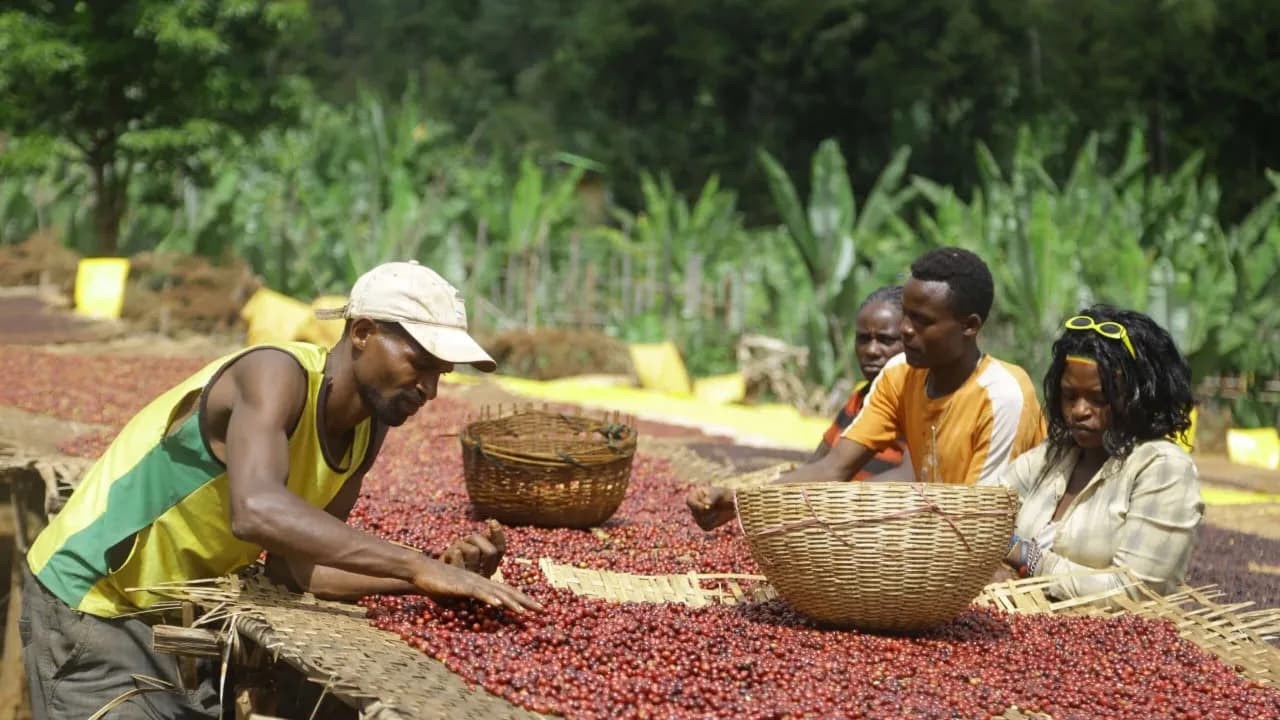Progress for 0 ad
Progress for 1 ad
Progress for 2 ad
Progress for 3 ad


Munir Shemsu
Addis Ababa, Ethiopia

Ethiopia’s coffee exporters heave a sigh of relief as the pending implementation of the European Union’s Deforestation Regulation (EUDR) gets tabled for a year-long extension. The EU Commission proposed the extension last week after considerable pressure from international trading partners, lawmakers, and business groups. If the proposal gets approval from the EU parliament next month, it would see the December 30 deadline get pushed by a year.
While seven commodities (cattle, cocoa, coffee, palm oil, rubber, soy, and wood) fall under the EUDR’s purview, coffee represents a uniquely valuable economic bridge between Ethiopia and the EU. The 27-member strong union accounted for 34.5% of all merchandise exports from Ethiopia in the second quarter of 2023/2024, with coffee contributing nearly a third of the total outflow.
UK-based think tank ODI recently modeled the potential fallout from EUDR on Ethiopia. In the most extreme scenario, where exports to the EU cease completely, Ethiopia could face an 18.4% drop in overall exports, a 5.8% fall in imports, a 0.6% decrease in GDP, and a 3.3% reduction in public revenue.
The EUDR introduces stringent due diligence requirements to ensure that the agricultural commodities imported into the Union are free of links from deforestation, forest degradation, human rights violations, and even indigenous community rights post-December 2024. Compliance with these standards entails investments in geo-referenced production, which gets tricky for countries like Ethiopia that aggregate coffee produced from around 5 million smallholder farmers. Nearly 85% of Ethiopia’s coffee is planted on less than half a hectare.
Recognizing the looming threat to Ethiopia’s prized commodity, the Ethiopian Coffee & Tea Authority launched a 2.2 billion birr action plan last year as it continued to pursue a grace period from the EU. The Authority also later forged an alliance with multinational coffee giant JDE Peets and sustainability assurance firm Enveritas to map the farmlands.
Major players in Ethiopia’s coffee supply chain, like the Oromia Coffee Farmers Cooperative Union (OCFCU), which has over half a million farmers, have made some progress in terms of mapping.
Dejene Dadhi, general manager of the OCFCU, says they have managed to reach 18k farmers with their georeferencing initiative in anticipation of the deadline. He expects continued assistance from international partners to help them make significant headway if the EU’s extension gets a greenlight.
“A year will help us go a long way,” Dejene told Shega.
Ethiopia’s coffee supply chain is creeping towards recovery from the compounding challenges of a shipping crisis in the Red Sea, a decline in international prices, and heated competition from countries like Brazil. An extension to the EUDR deadline from the initial December 30 mark will likely ring a positive tune to a sector squeezed on several fronts.
According to Prime Minister Abiy Ahmed, Ethiopia's annual coffee production has doubled from 500,000 tons to over one million tons in the past five years. In the last fiscal year, coffee exports reached an all-time record of $1.4 billion.
👏
😂
❤️
😲
😠

Munir Shemsu
Munir S. Mohammed is a journalist, writer, and researcher based in Ethiopia. He has a background in Economics and his interest's span technology, education, finance, and capital markets. Munir is currently the Editor-in-Chief at Shega Media and a contributor to the Shega Insights team.
Your Email Address Will Not Be Published. Required Fields Are Marked *